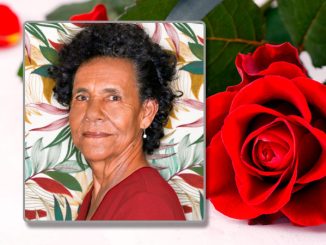
By Jeremy Alford & Mitch Rabalais, LaPolitics.com
Although they don’t always end up being debated inside Louisiana’s Capitol building, issues that capture the attention of hunters and anglers are constantly under review in ways both big and small, according to the chairman of the House Natural Resources Committee.
State Rep. Stuart Bishop, R-Lafayette, said in a recent interview that many of the proposals for the regular session that convenes on March 12 are still being drafted and researched. But he touched on a number of issues, ranging from deer and fish populations to feral hogs, that are creating a buzz on social media and at hunting and fishing camps across the state.
The House Natural Resources Committee oversees not only the Department of Wildlife and Fisheries and the activities it regulates, but also all legislative matters pertaining to mining, energy and public lands.
Hunting and fishing issues, however, routinely produce some of the most emotional exchanges between lawmakers and residents of the so-called “Sportsman’s Paradise,” he added.
One issue that seems to be trending on Facebook and similar platforms is the question of whether hunters should should take partial blame for declining deer populations. In particular, there’s the suggestion that too many does, or female deers, are being harvested.
“It’s quite possible,” said Bishop when asked if doe numbers might become the focus of upcoming legislation. “I’d like to see more people take a look at the Quality Deer Management Program, as well as get involved with the biologists at (the Department of) Wildlife and Fisheries to see what is exactly right.”
Bishop, a second-term legislator, is entering his third year as natural resources chairman, and he’ll soon get the chance to revisit one of his own policy milestones from 2014. That was when the Legislature and former Gov. Bobby Jindal endorsed Bishop’s plan for funding an initiative to allow the state to collect its own recreational fishing data.
It took considerable time and effort, but the federal government finally approved the LA Creel survey program earlier this month. As a result, the survey program funded by Bishop’s enabling legislation can now officially replace the federal Marine Recreational Information Program in state waters.
Federal fish counts have been under heavy scrutiny in recent years by Louisiana interests, especially when it comes to red snapper populations. Congressman Garret Graves, R-Baton Rouge, said recently that LA Creel could lead to more fishing opportunities for Bayou State anglers.
“This is absolutely a huge win for the fishermen of Louisiana,” Bishop said, adding, “We’re going to extend (the funding for LA Creel) for another four years.”
That renewal bill should surface soon, in time for the regular session and prior to the May 31 expiration date of Bishop’s enabling legislation from 2014. That measure added a fee of $7.50 for residents purchasing a saltwater license and it dedicated that money to the Saltwater Fish Research and Conservation Fund, which underwrites LA Creel.
Invasive feral hogs have become another perennial issue for the House Natural Resources Committee, said Bishop, and there’s a growing focus on the use of toxic baits, like Kaput. Interested parties are trying to weigh the risks of such poisons, with varying degrees of success, against the destruction caused by feral hogs.
It’s a serious matter, the chairman said, with about 700,000 wild swine roaming around each and every Louisiana parish. The LSU AgCenter found that the hogs were the source of $55 million in agricultural damages in 2014 and 2015.
“We need to look at what other states are doing with the non-transport of feral hogs and we need to look at Kaput and if it’s absolutely the right toxicant for it,” said Bishop, referencing ongoing research that involves the departments of agriculture and wildlife, both of which are exploring a variety of different avenues. “We need to make sure there aren’t any byproducts and there aren’t any other animals eating the toxicants that we’re putting out for the hogs.”
Political History: Landrieu’s rocky start
It was 21 years ago this month, in January 1997, when Louisiana found itself sending a new U.S. senator to Washington for only the second time in nearly 30 years.
But a close election, in concert with an investigation and a formal Senate inquiry, threatened to end Mary Landrieu’s tenure before it ever began.
Her opponent from the November election, then-state Rep. Woody Jenkins, had refused to concede the race, claiming that Landrieu’s 5,788 vote margin was fraudulent. After attempting a lawsuit, Jenkins filed a formal complaint with the Senate contesting the election. Jenkins alleged that massive voter irregularities had taken place, particularly in Orleans Parish.
Over Jenkins’ objections, Secretary of State Fox McKeithen had already certified Landrieu’s election. On Jan. 7, 1997, Landrieu was seated “without prejudice,” a unique legal circumstance in which the Senate recognized her victory, but retained the right to investigate the election and, if necessary, remove her from the upper chamber.
The matter was referred to the Committee on Rules and Administration, which reviewed Jenkins’ petition and heard his testimony. Jenkins and his supporters also intensively lobbied Republicans on the committee to open a formal investigation. The majority of members agreed in a vote that divided along party lines.
Seeing the investigation as purely partisan, Democratic Sen. Robert Byrd said, “The majority has decided to go to war.”
Assisted by the FBI, Senate investigators spent weeks in Louisiana reviewing voter records and collecting testimony. GOP Sen. John Warner, the committee’s chairman, held four days of hearings in the state during a congressional recess.
With no significant evidence produced, Senate Democrats rallied around Landrieu and attempted to use parliamentary measures to block the investigation. Majority Leader Trent Lott countered by moving daily adjournment times around to accommodate his party’s ongoing hearings.
While uncovering a handful of instances of voter fraud, investigators were unable to find the proverbial “smoking gun” to reverse the election. On Oct. 1, 1997, the committee unanimously voted to end the investigation, stating in a final report that “no evidence has been uncovered that Senator Landrieu was involved in any fraudulent election activities.”
Addressing reporters after the committee vote, Landrieu said of the ordeal, “It has been an unwelcomed baptism by fire for me in the Senate.”
They Said It
“I think my wife would leave me if I ever retired. Not because of the income. Because I don’t think she could spend that much time with me.”
—Congressman Garret Graves, on Facebook Live
“I don’t believe we need more gun control. We need more idiot control.”
—U.S. Sen. John Kennedy, on CNN





Be the first to comment